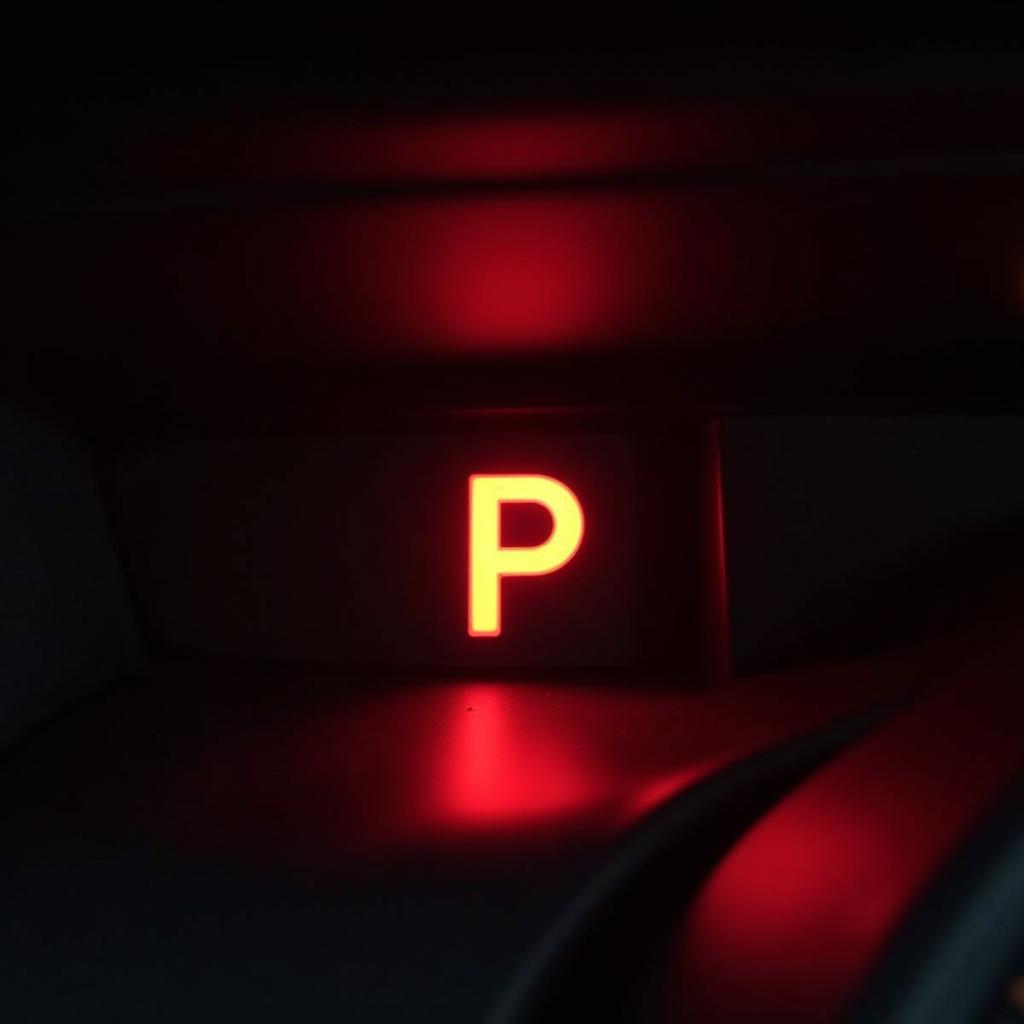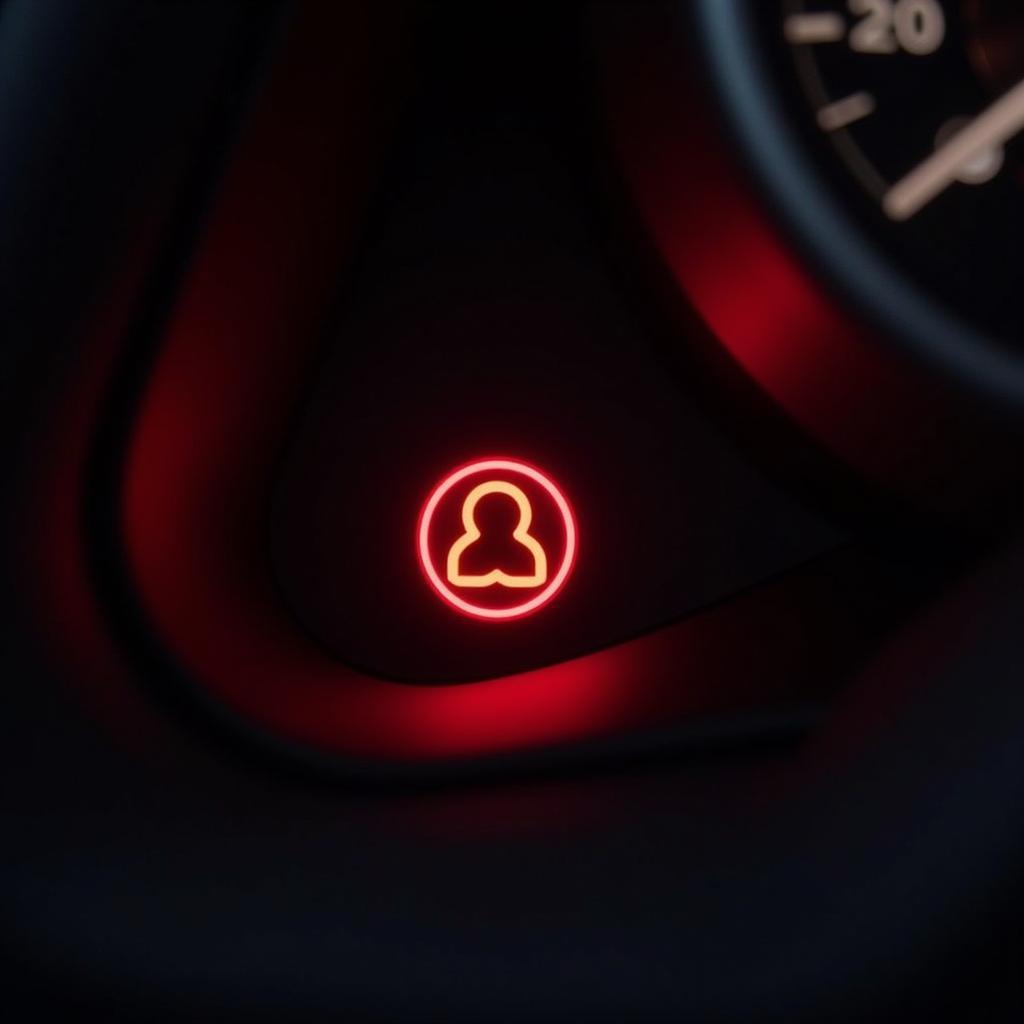The brake warning system on your Chevrolet Colorado is a critical safety feature designed to alert you to potential issues with your braking system. When this system detects a problem, it illuminates a warning light on your dashboard, typically a red circle with an exclamation point (!) or the word “BRAKE” inside. Ignoring this warning light could be dangerous, so it’s essential to understand what might be causing it and how to address the problem.
Common Causes of a Chevrolet Colorado Brake Warning Light
Several factors can trigger the brake warning light on your Chevrolet Colorado. Here are some of the most common culprits:
- Low Brake Fluid: One of the most frequent causes is low brake fluid, often due to worn brake pads or a leak in the braking system. Brake fluid is the lifeblood of your brakes, and low fluid levels can significantly reduce braking performance.
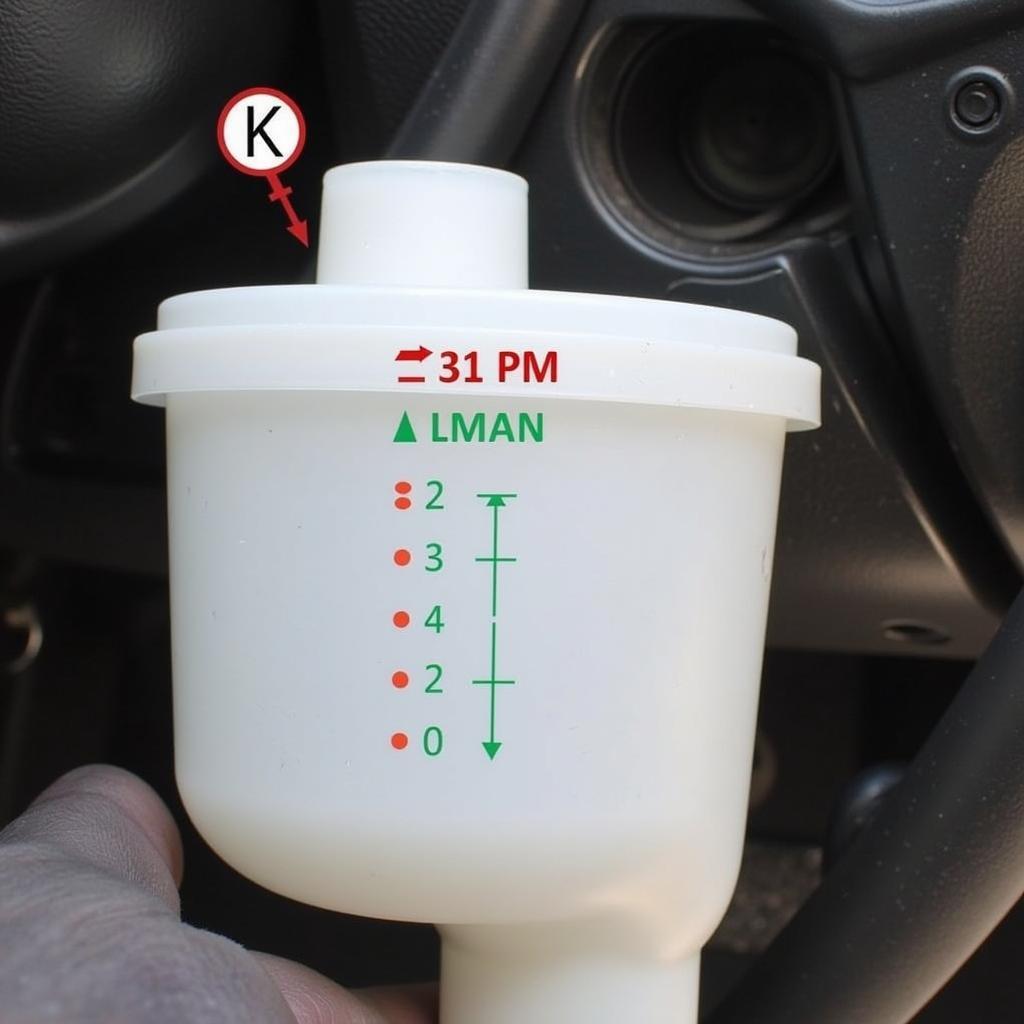 Checking Brake Fluid Level
Checking Brake Fluid Level
- Worn Brake Pads: Your Chevrolet Colorado’s brake pads are designed to wear down over time. When they become too thin, a sensor within the brake pad will contact the rotor, triggering the warning light.
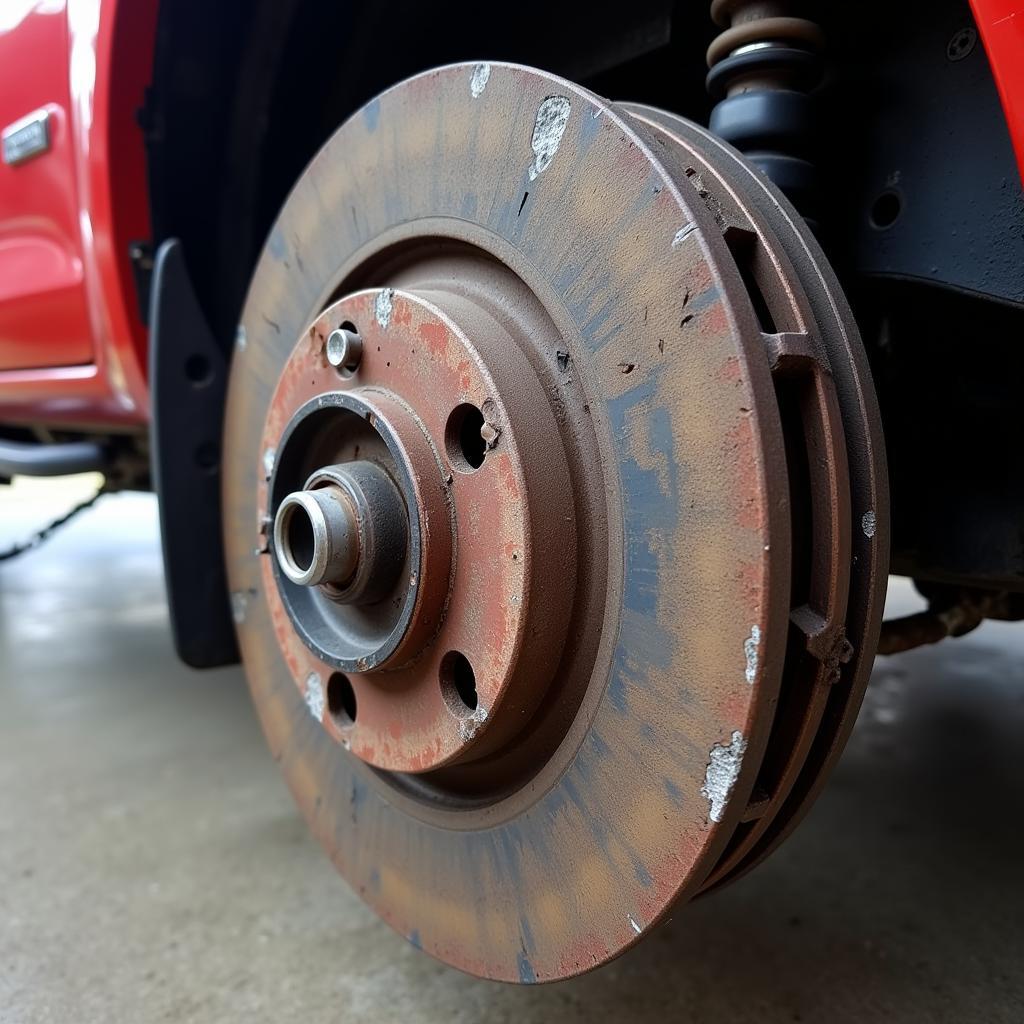 Worn Brake Pads on a Chevrolet Colorado
Worn Brake Pads on a Chevrolet Colorado
-
Faulty ABS System: Your Anti-lock Braking System (ABS) helps prevent your wheels from locking up during hard braking, allowing you to maintain steering control. A malfunction within the ABS system, such as a faulty wheel speed sensor, can illuminate the brake warning light.
-
Parking Brake Engaged: It might seem obvious, but sometimes the simplest explanation is the correct one. If you’ve left your parking brake partially engaged, it can trigger the brake warning light.
-
Electrical Issue: Like any electrical system, the brake warning system can experience issues with wiring, connectors, or the warning light itself. A short circuit or a faulty connection could cause the light to illuminate even if there’s no actual problem with the braking system.
Diagnosing the Issue: Steps to Take
If your Chevrolet Colorado’s brake warning light illuminates, don’t panic. Follow these steps to help diagnose the problem:
-
Check Your Parking Brake: Make sure your parking brake is fully disengaged. If it was even partially applied, disengaging it might be enough to turn off the warning light.
-
Inspect Brake Fluid Level: Park your vehicle on a level surface and locate the brake fluid reservoir. It’s typically a translucent plastic container with a black cap, positioned near the firewall on the driver’s side. Check the fluid level against the minimum and maximum markings on the reservoir. If the level is low, adding brake fluid might temporarily address the issue, but you’ll need to have the system inspected for leaks or worn brake components.
-
Listen for Unusual Noises: When applying the brakes, listen for any unusual sounds like grinding, screeching, or clicking. These noises can indicate worn brake pads or other issues within the braking system.
-
Consult a Professional: If the brake warning light remains illuminated after checking the parking brake and brake fluid level, or if you notice any unusual noises or braking performance issues, it’s crucial to consult a qualified mechanic. Attempting to diagnose or repair brake system issues yourself can be dangerous if you lack the necessary expertise and equipment.
Remote Diagnostics and Software Solutions: A Modern Approach
In today’s technologically advanced automotive landscape, remote diagnostics and software solutions are playing an increasingly significant role in addressing vehicle issues, including those related to the brake warning system.
“Remote diagnostics allow us to connect to a vehicle’s onboard computer system from anywhere in the world, ” says automotive electrical engineer and remote diagnostics specialist, Mark Jenkins. “This allows us to retrieve valuable diagnostic data, pinpoint the root cause of a problem, and even provide software updates or reprogramming to address certain issues.”
This technology can be particularly beneficial for addressing software-related glitches that might be triggering a false warning light or for remotely diagnosing issues with the ABS system.
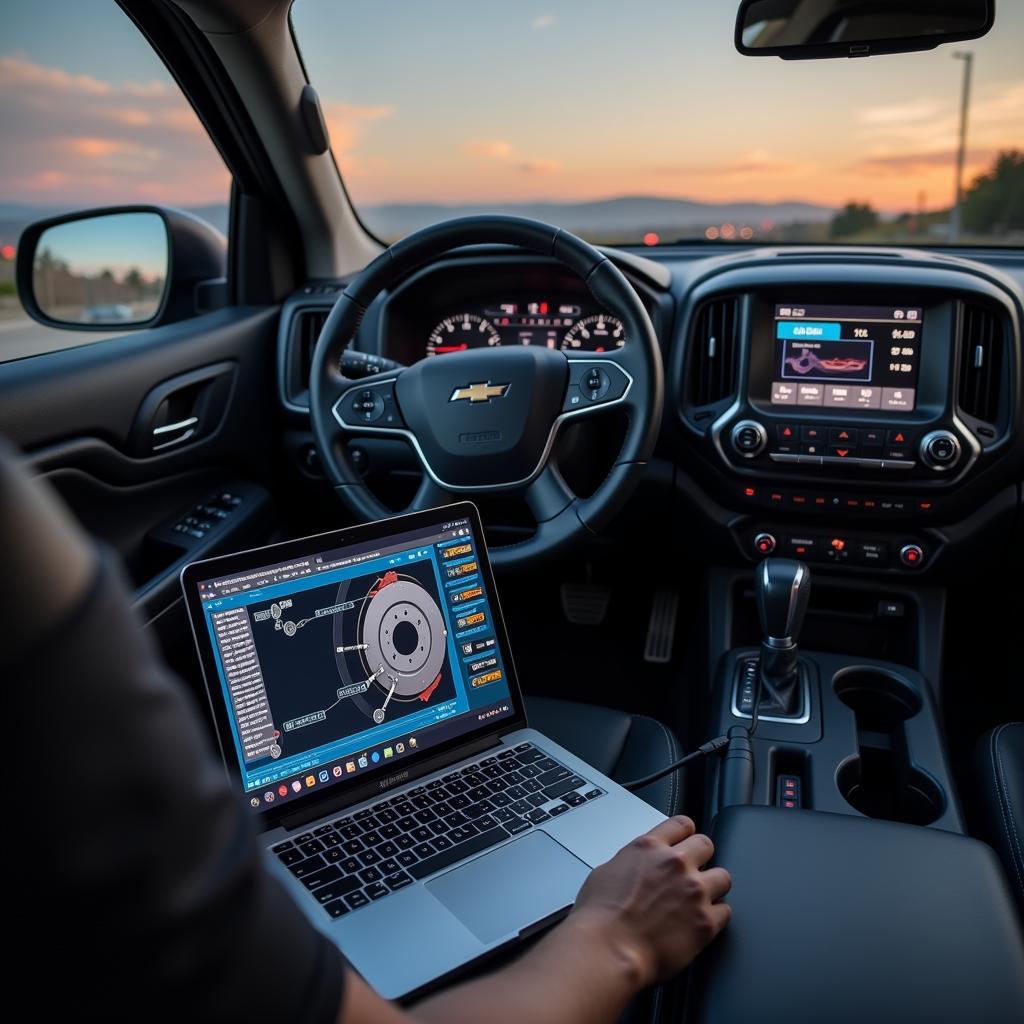 Remote Diagnostics for Chevrolet Colorado Brake System
Remote Diagnostics for Chevrolet Colorado Brake System
Conclusion: Prioritizing Your Safety
The brake warning system on your Chevrolet Colorado is a critical safety feature that should never be ignored. By understanding the common causes of this warning light and following the recommended diagnostic steps, you can help ensure the safety and reliability of your vehicle’s braking system. If you encounter a persistent warning light or experience any issues with your brakes, it’s crucial to seek professional assistance from a qualified mechanic to diagnose and address the problem.

